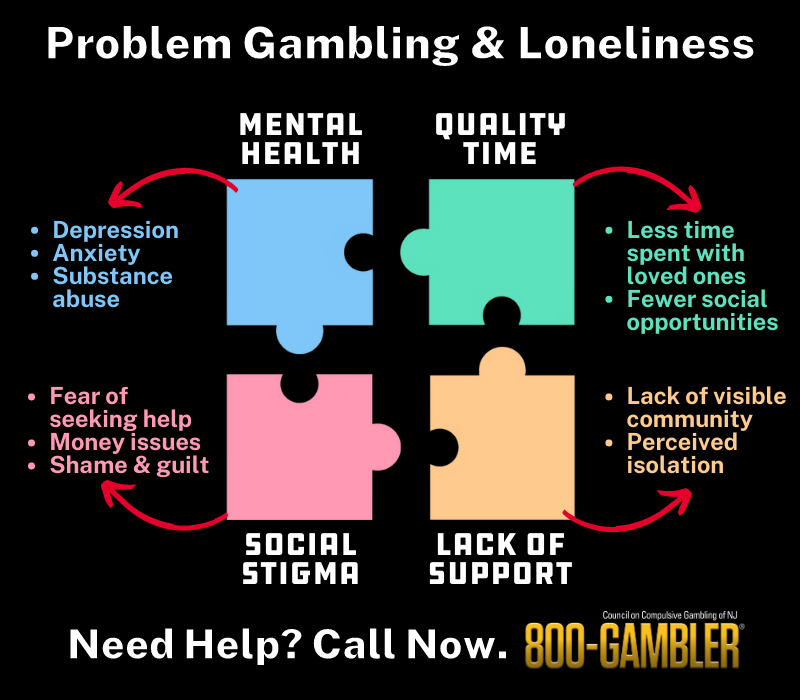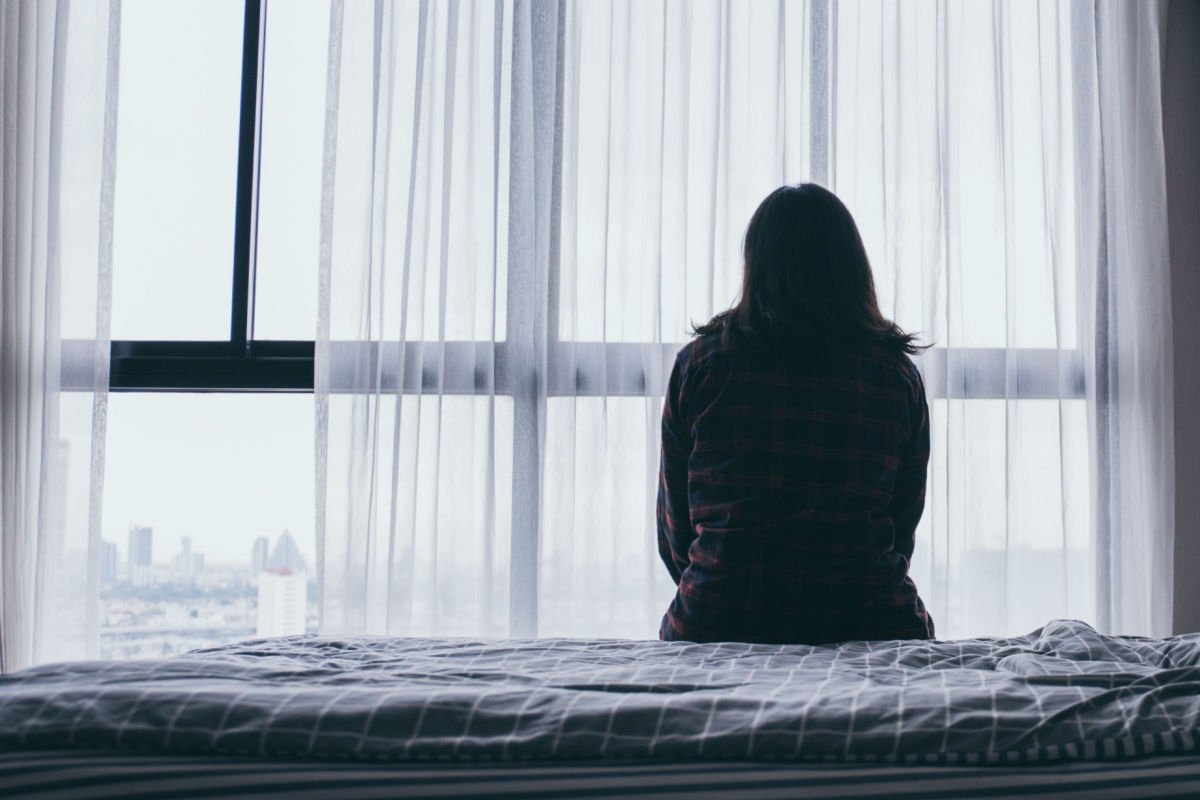Gambling can be a form of harmless entertainment when it’s done in moderation. However, if your gambling behavior is out of control, you can wind up on a dark path. Research has continued to show that problem gambling can be detrimental to one’s mental and physical health. One commonly felt but rarely discussed emotion associated with problem gambling is loneliness.
Both scientific studies and anecdotal accounts have shown a strong correlation between problem gambling and loneliness. People who struggle with problem gambling behavior often describe feeling disconnected from the world around them. They feel isolated from their family and friends, misunderstood at work or school, and lack meaningful connections in their lives. This isolation creates an ever-deepening cycle of loneliness that pushes them further into the destructive grip of problem gambling. So why is problem gambling connected to loneliness — and how can you break this harmful cycle?

Mental Health
Many people struggling with their mental health report feeling lonely and isolated. Unfortunately, the psychological effects of problem gambling have been found to co-occur with many mental health problems, including depression, anxiety, substance abuse, and even suicidal ideation. Some people gamble because they struggle with mental health issues; others experience mental health issues as a result of their problematic gambling. However a person ends up developing gambling problems, they are more likely to end up feeling alone. If you have been feeling unsure if you can handle daily tasks or have questioned your mental health, it’s time to consider therapy, counseling, or another type of mental health care.
Quality Time
Many problem gamblers tend to prioritize gambling over activities with friends and family. After all, if you’re at the casino every night or participating in online gambling events 24/7, you probably aren’t spending time with your loved ones the way you used to do before you developed a gambling problem. Unfortunately, excessive gambling can create a sense of social isolation as fewer opportunities for quality time occur and support systems become more distant. Don’t let an electronic gaming machine or app become more important than your loved ones. Instead, remind yourself that they want to see you and spend time with you, and take steps towards communicating with them about your problem so you can work towards a solution.
Social Stigma
Some people feel lonely due to the stigma that society can place on problem gambling. For instance, you might worry about seeking out addiction treatment or starting a conversation about your gambling problem because you worry about being judged by the people in your life. This can lead to feelings of secrecy and isolation, as well as punishing yourself for not having regained control of your life sooner. However, the best way to deal with problem gambling includes admitting that you have a problem, so it’s important to accept what is happening and stop feeling ashamed of yourself for your past actions.
Lack of Support
Another factor that can create a sense of isolation is a lack of community support and connection. If no one you know has ever dealt with a gambling problem, or if you’ve never heard anything about how to quit gambling, you might feel like nobody around you understands your plight. Certain groups, such as older adults, LGBTQ+ people, and people of color, might feel even more alone when dealing with their problems because of the additional social struggles of ageism, homophobia, and racism.
Community matters, and that’s why it’s so important to seek out in-person support groups like Gamblers Anonymous. There are Gamblers Anonymous Zoom meetings for people who can’t make it to in-person meetings or live too far from their nearest meeting location, and many meetings take place in areas that have access to public transportation.
Get Gambling Help Now
If you are feeling lonely and isolated due to your gambling problem or just want to regain control of your life, help is just one call away at 800-GAMBLER. Contact our toll-free, confidential hotline anytime, and we can connect you with the resources that you need. We promise that you aren’t alone, no matter how much it feels like you are.



